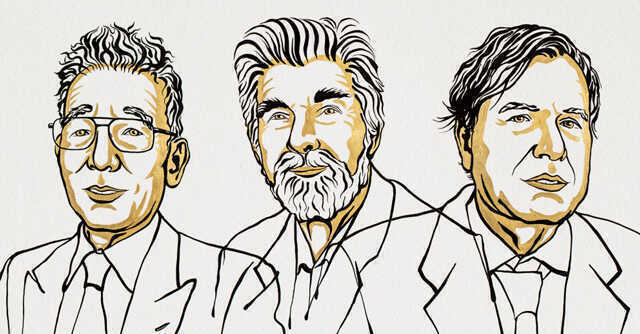
Nobel Prize in Physics awarded for studies in climate change for the first time


The Nobel Prize in physics, has for the first time been awarded to three scientists, for their work in climate change. The winners this year are Syukuro Manabe from Princeton University, Klaus Hasselmann from the Max Planck Institute for Meteorology in Germany, and Giorgio Parisi from the Sapienza University of Rome. They were awarded “for groundbreaking contributions to our understanding of complex systems”.
One half of the award will go to Manabe and Hasselmann “for the physical modelling of Earth’s climate, quantifying variability and reliability predicting global warming”, while Parisi gets the other half for the discovery of “the interplay of disorder and fluctuations in physical systems from atomic to planetary scales”.
“The discoveries being recognised this year demonstrate that our knowledge about the climate rests on a solid scientific foundation, based on a rigorous analysis of observations. This year’s Laureates have all contributed to us gaining deeper insight into the properties and evolution of complex physical systems,” said Thors Hans Hansson, chair of the Nobel Committee for Physics.

Manabe’s work dates back to the 1960s, when he developed a computer model to demonstrate how increased carbon dioxide levels have affected the temperatures on the surface of the Earth. He was the first person to “explore the interaction between radiation balance and the vertical transport of air masses”, laying the foundation for our current climate models.
About 10 years after Manabe’s discovery, Hasselmann created a model linking weather and climate, showing why climate models are reliable “despite weather being changeable and chaotic”. “He also developed methods for identifying specific signals, fingerprints, that both natural phenomena and human activities imprint in the climate. His methods have been used to prove that the increased temperature in the atmosphere is due to human emissions of carbon dioxide,” a press release from the Nobel Committee said.
Lastly, Parisi discovered hidden patterns in “disordered complex materials”. The committee said that Parisi’s discovery is amongst the “most important contributions” to the theory of complex systems. “They make it possible to understand and describe many different and apparently entirely random materials and phenomena, not only in physics but also in other, very different areas, such as mathematics, biology, neuroscience and machine learning,” the statement said.

